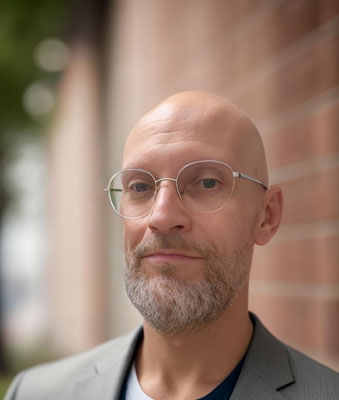Age of anxiety
On my bookshelf in the ’90s was a volume of poetry entitled The Age of Anxiety. It contained a series of poems (of varying quality) on the worries of the decade – AIDS, climate change, terrorism, economic instability and war.
The title of that anthology came from WH Auden’s epic 1947 poem (1) exploring the anxieties of post-war America and Britain.
The anxieties of these poets ring very familiarly today. The re-appearance of despotism and populist revolts against the established, liberal order; the uncertain path to Brexit and its aftermath; global terrorism from multiple ideologies; all challenge our sense of political security (for good and ill).
In medicine, we face genetic engineering, the push to liberalise abortion and euthanasia laws, new epidemics of Ebola and virulent influenza, the rising tide of non-communicable diseases, the financial strains on the NHS and the crisis in our care system. All raise anxieties about the future of healthcare.
The changing cultural and spiritual landscape adds to this insecurity, where what was unthinkable less than a decade ago is now normalised. It is a time where dissension is increasingly stifled by the opprobrium of the Twitterati. The cusp of the ’20s would seem to be another age of anxiety.
Well, that is how the press often portray it. The Christian press is no exception to that, and hands on heart, we have been guilty of that in Triple Helix as well.
But let’s stop for a moment and consider. Reading in the books of Samuel and Kings recently, I found it hard not to notice the anxieties of the people of Israel, facing occupation and oppression from the Ammonites, Moabites, Philistines and others. Where was God when they needed him? Why was it that the Torah demanded a way of life so at odds with the cultures around them? Surely, it would be easier just to go along with the ways of the surrounding nations?
Or take Elijah, alone in the wilderness and despairing after his apparent victory against the prophets of Baal on Mount Carmel was quickly reversed, and he had to flee for his life. Why had God led him into such a situation? Surely, it would have been easier to keep his head down and not challenge the political and religious establishments of his day? (2)
Every age it would seem is an age of anxiety. It is the human condition – a result of the fall. Every age joins with the cry of the prophets and psalmists in asking where God is in the midst of everything that is happening around us. One of our besetting sins is to be cowed by this anxiety, or to believe this fear is unique to our time and society and to lose hope.
The other sins society falls into are either the naïve ‘we’ve never had it so good’ optimism of a Steven Pinker, or the nostalgic delusion that if only we went back to the way things used to be, all would be better. A fourth error is simply to bury our heads in the sand of Netflix binge watching, anaesthetising ourselves with entertainment.
Jesus calls us to something quite different. In his long discourse about the destruction of the Temple and the coming persecution of believers, (3) he counselled the disciples ‘You will hear of wars and rumours of wars, but see to it that you are not alarmed. Such things must happen, but the end is still to come.’ (Matthew 24:6)
When you read through Matthew 24, the list of anxieties and trials before the early church could have been written today. Jesus warned them to be prepared for this, but also to hope, because this is all part of the coming of the kingdom of God. We are told not to fear or to be anxious because God is still in control. And the kingdom of God is, for now at least, at work in quietly powerful ways, in the lives and witness of his people around the world.
Israel lived through its age of anxiety, guided by the judges and the prophets until David as king re-united the nation and brought peace (albeit only for a couple generations). Elijah encountered God during his exile and was given reasons to trust in a better future. We also wait; not passively, but actively engaging with the world. We may feel powerless to change the things going on around us, but we serve a God who has the power to do anything.
Change is coming thick and fast, but God is at work in the midst of it. I hope that some of the stories and reflections in this edition of Triple Helix might encourage you to see something of how God is working. His invitation is for us to join with him, bringing his good news of salvation and hope to an anxious and hurting world.



